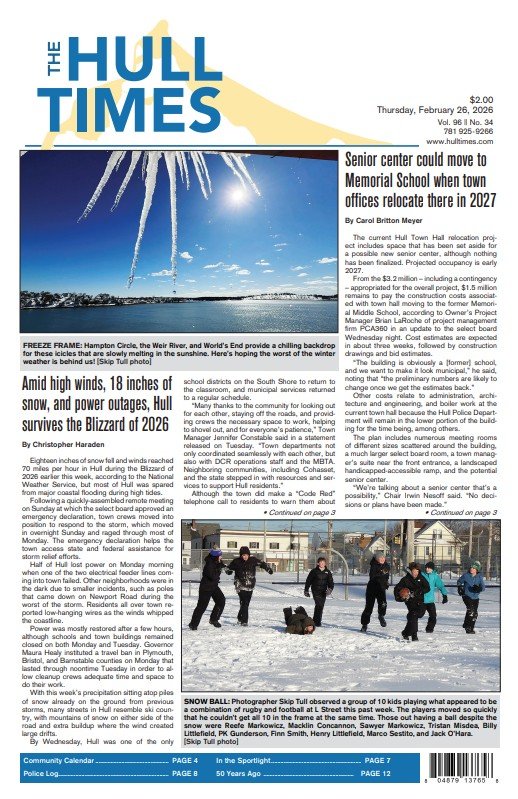Light commissioners differ on manager’s role in determining plant’s payment-in-lieu-of-taxes
/By Carol Britton Meyer
The light board last week discussed at length for the third time the draft policy on payments-in-lieu-of taxes (PILOTs) but did not take a vote due to the need for further details.
The policy had been earlier reviewed and refined by light plant attorney Nicholas Scobbo. Member Jake Vaillancourt and town manager/light plant manager Jennifer Constable were not present at the October 23 meeting.
Further discussion on the policy will take place at the board’s November 20 meeting, when Vaillancourt and Constable will be in attendance, and a vote is expected at that time.
The policy relates to 1) board authority over the PILOT program; 2) the annual review and timing; 3) a single annual payment, if any; 4) the condition of the light plant’s surplus funds before any PILOT payment is decided upon; 5) determining the PILOT amount; 6) compliance with Massachusetts law; 7) light board vote and documentation of any such payment; 8) the effective date of the policy once approved by the board; 9) and the provision that the new policy would supersede any previous practices or arrangements that conflict with the intent of the board’s vote to approve the policy.
Click here for the light plant’s PILOT policy
The board held numbers 1, 5, and 8 of the draft policy for further review during its next meeting, with most of the discussion centering on number 1.
This part of the draft policy states that the amount and authorization of any PILOT payment shall be determined solely by the elected light board and that the light plant manager “shall not independently set or schedule PILOT payments.”
There were differing views among board members about the level of involvement the town manager/light plant manager should have in this process.
Board member Dan Ciccariello claims there’s a conflict of interest with one person serving in both roles “because you don’t know whose interest that person is taking. I think the ratepayers should be assured that the party making this determination has their interest, rather than the town’s, at heart.”
He further noted that PILOT payments are part of the town budget, and if there’s a problem with that budget, it’s “up to the select board to raise taxes or cut services” and not up to the light board to cover the shortfall with a PILOT payment.
On the other hand, member Stephanie Landry thinks the board “should work cooperatively with the light plant manager” to arrive at the decision outlined in number 1.
Number 5, relating to determining the PILOT amount, states that the board “shall exercise prudent judgment in setting the PILOT amount, taking into account the size of the surplus and HMLP’s financial obligations and future needs as well as input from town officials.” Further clarification will be sought from Scobbo regarding to whom the term “town officials” refers.
Number 8 relates to the effective date of the policy once approved and “shall apply to the current fiscal year and all future years unless amended by the board.”
There will be further discussion about numbers 1, 5, and 8 of the policy and a vote at the next light board meeting.
Other agenda items that night will include the sharing of any input from solar users as a light board task force studies recommendations on solar power-related issues and rates; an update on Spinnaker Island and National Grid issues; cost estimates for a new light plant garage to protect vehicles from damage from the elements; a discussion about how to address the issue of light board emails not working properly; the proposed combined DPW/light plant facility at West Corner; and a conversation about agenda setting for future board meetings.
Like what you’re reading? Stay informed and support our work with a Hull Times subscription by clicking here.
Do you have an opinion to share? Click here to write a Letter to the Editor.
© 2025 The Hull Times. All rights reserved.












